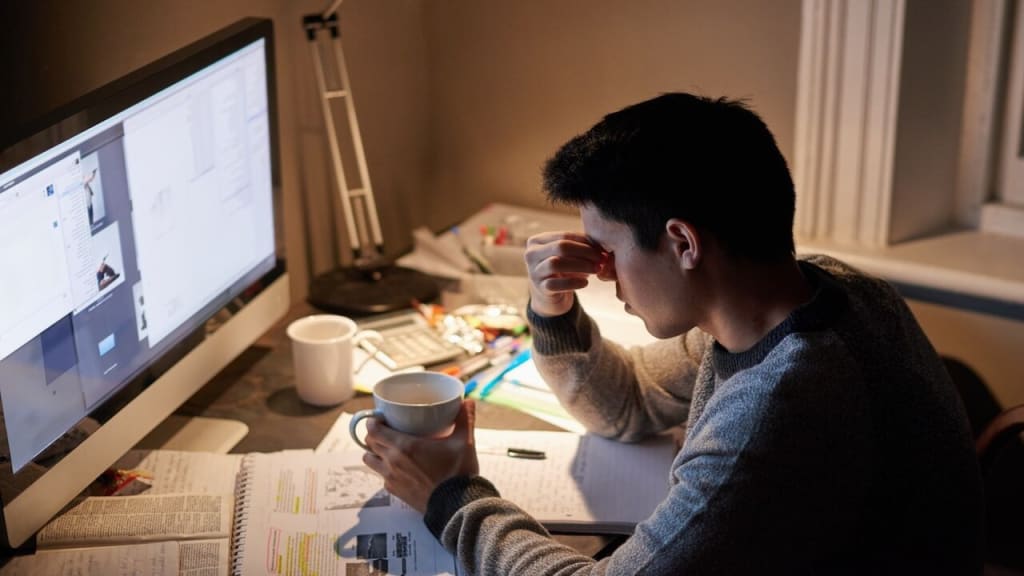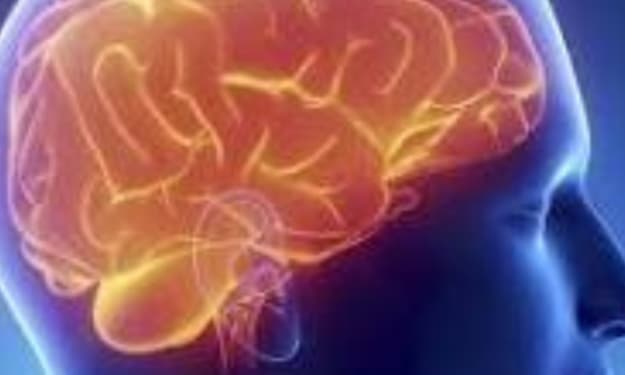Exploring The Impact of Excessive Screen Time and Digital Overload on Mental Health
Defining digital well-being and its importance in modern life.

In today's digital age, we are more connected than ever before. With the ease of access to technology, we enjoy the benefits of instant gratification and constant entertainment. However, the consequences of this convenience can be detrimental to our overall well-being. Excessive screen time and digital overload have been linked to a myriad of mental health issues, including anxiety, depression, and insomnia. Understanding the impact of technology on our mental health is crucial to maintaining a healthy balance in the digital age. In this article, we will explore the negative effects of excessive screen time and digital overload on mental health, as well as strategies for minimizing these impacts and promoting good mental health.
Introduction: The Rise of Technology and Digital Overload
With the rise of technology and the increasing prevalence of smartphones, laptops, and other digital devices, we are more connected than ever before. While technology has undoubtedly made our lives easier in many ways, there is also a growing concern over the negative impact of excessive screen time and digital overload on mental health. In this article, we will explore the link between digital overload and mental health, and what steps we can take to mitigate the risks.
The Prevalence of Technology in Modern Life
It's hard to imagine life without smartphones and laptops. We use them to stay connected with friends and family, to work, to learn, and to entertain ourselves. It's estimated that the average person spends up to 11 hours a day on their devices, with teenagers and young adults spending even more. This constant use of technology means that we are constantly bombarded with notifications, messages, and other stimuli, which can take a toll on our mental health.
The Negative Impact of Excessive Screen Time on Mental Health
While technology can be incredibly useful, excessive screen time has been linked to a range of mental health issues, including anxiety, depression, and sleep problems. According to a study conducted by the American Psychological Association, people who spend more time on their phones and other devices are more likely to report symptoms of anxiety and depression. This is because the constant stimulation of our devices can lead to a state of overstimulation and make it harder for us to relax and switch off.
Understanding the Risks of Excessive Screen Time and Digital Overload on Mental Health
The Science Behind Digital Overload
The human brain is not designed to cope with the constant barrage of stimuli that comes with digital overload. When we are constantly bombarded with notifications, messages, and other stimuli, it can lead to a state of overstimulation, which can cause anxiety, stress, and other mental health issues. The science behind digital overload shows that excessive screen time can also lead to changes in brain chemistry, which can harm our mental well-being.
The Impact of Digital Overload on Brain Development
Excessive screen time can also harm brain development, particularly in children and teenagers. Studies have shown that excessive screen time can lead to changes in the parts of the brain that are responsible for emotional regulation, attention, and decision-making. This can increase the risk of developing mental health issues later in life, such as ADHD, anxiety, and depression.
The Link Between Digital Overload and Anxiety
Anxiety and Technology Addiction
Technology addiction is a growing concern, with many people reporting feeling anxious or agitated when they are unable to access their devices. This constant need for stimulation can lead to a state of overstimulation, which can cause anxiety and other mental health issues. People who are addicted to their devices may also experience withdrawal symptoms when they are unable to access their devices, which can further exacerbate feelings of anxiety.
The Relationship Between Social Media Use and Anxiety
Social media use has been linked to increased levels of anxiety, particularly in young people. This is because social media can create a sense of pressure to present a perfect image of ourselves to the world, which can lead to feelings of inadequacy and low self-esteem. Social media can also expose us to negative news stories and images, which can further exacerbate feelings of anxiety and stress.
The Connection Between Social Media and Depression
Social Media and the Fear of Missing Out (FOMO)
Social media can also contribute to feelings of depression, particularly in young people. The fear of missing out (FOMO) is a common feeling among people who use social media, as they feel pressure to constantly be connected and up-to-date on the latest news and trends. This constant need to be connected can lead to feelings of loneliness and isolation, which can contribute to the development of depression.
The Role of Social Comparison in Depression and Anxiety
Social media can also contribute to feelings of depression and anxiety by encouraging social comparison. When we compare ourselves to others on social media, it's easy to feel like we don't measure up. This can lead to feelings of worthlessness and low self-esteem, which can contribute to the development of depression and anxiety.
How Digital Overload Affects Sleep Patterns and Insomnia
In today's digital age, it's common to hear about the negative effects of excessive screen time on mental health. However, not many people are aware of the impact it has on their sleep. Digital overload can cause sleep disruptions, making it difficult to fall asleep and stay asleep.
The Connection Between Screen Time and Sleep Disruptions
Studies show a clear correlation between screen time and sleep disruptions. The blue light emitted by electronic devices suppresses the production of melatonin, a hormone that regulates sleep and wakefulness. This leads to difficulty falling asleep, decreased quality of sleep, and even insomnia.
In addition, the mental stimulation from using devices before bedtime can cause racing thoughts and anxiety, making it even harder to fall asleep.
How Blue Light Exposure Affects Circadian Rhythms
Blue light exposure, which is present in electronic devices, can disrupt circadian rhythms, the natural biological process that regulates sleep and wakefulness. Circadian rhythms are influenced by light and darkness, and blue light exposure can signal the brain to stay awake and alert, disrupting the natural sleep-wake cycle.
To promote better sleep hygiene, it's important to limit screen time before bedtime and consider the use of blue light filters or glasses to mitigate the impact of electronic devices on sleep patterns.
Strategies for Minimizing Digital Overload and Nurturing Good Mental Health
Excessive screen time can not only disrupt sleep patterns but also negatively impact overall mental health. To promote good mental health and find a healthy balance in the digital age, consider the following strategies:
Setting Boundaries on Technology Use
Creating clear boundaries on technology use can help promote a healthier relationship with digital devices. This can include setting a specific time to unplug from devices before bed, limiting the amount of time spent on social media, and turning off notifications during designated periods.
Practicing Mindfulness and Disconnecting from Technology
Practicing mindfulness and disconnecting from technology can help reduce stress and promote mental relaxation. Mindful activities such as meditation, breathing exercises, or yoga can help redirect focus away from electronic devices and promote mental well-being.
Engaging in Healthy Habits to Promote Good Mental Health
Engaging in healthy habits such as regular exercise, getting enough quality sleep, and spending time with loved ones can promote good mental health and reduce the negative effects of digital overload. Prioritizing self-care and mental well-being can help create a sustainable and healthy relationship with technology.
Conclusion: Finding a Healthy Balance in the Digital Age
In today's digitized world, it's important to prioritize mental health and find a healthy balance between technology use and mental well-being.
The Importance of Prioritizing Mental Health in a Digitally Driven World
With the increasing prevalence of digital devices, it's important to acknowledge the impact it has on our mental health and find ways to mitigate the negative effects. Prioritizing mental health and promoting self-care strategies can help create a sustainable relationship with technology.
Creating a Sustainable Relationship with Technology
Creating a sustainable relationship with technology involves setting clear boundaries, practicing mindfulness, and engaging in healthy habits to promote good mental health. With these strategies in place, we can find a healthy balance in the digital age and improve overall well-being. In conclusion, as technology continues to play an increasingly important role in our lives, we must take care to manage our exposure to digital overload and excessive screen time. By setting boundaries, practicing mindfulness, and engaging in healthy habits, we can promote good mental health and enjoy all the benefits of technology without the negative effects. With a little bit of effort and awareness, we can find a healthy balance in the digital age and enjoy a happier, healthier life.
FAQ
Is it harmful to be on technology all the time?
Yes, excessive screen time and digital overload can have negative effects on our mental health. Studies have linked excessive screen time to anxiety, depression, and insomnia.
What are some common symptoms of digital overload?
Some common symptoms of digital overload include anxiety, difficulty concentrating, sleep disturbances, and feelings of isolation and loneliness.
How can I minimize the negative effects of technology on my mental health?
There are several strategies you can use to minimize the negative effects of technology on your mental health. These include setting boundaries on technology use, practicing mindfulness and disconnecting from technology, and engaging in healthy habits to promote good mental health.
What can I do to reduce my screen time?
To reduce your screen time, consider setting limits on phone and computer use and engaging in activities that don't involve technology, such as reading a book, going for a walk, or spending time with loved ones. Additionally, avoid using technology before bed as it can disrupt your sleep patterns.
About the Creator
Corey Turner
Reading really is fundamental
Enjoyed the story? Support the Creator.
Subscribe for free to receive all their stories in your feed. You could also pledge your support or give them a one-off tip, letting them know you appreciate their work.






Comments (1)
Some fine points you have made Corey.